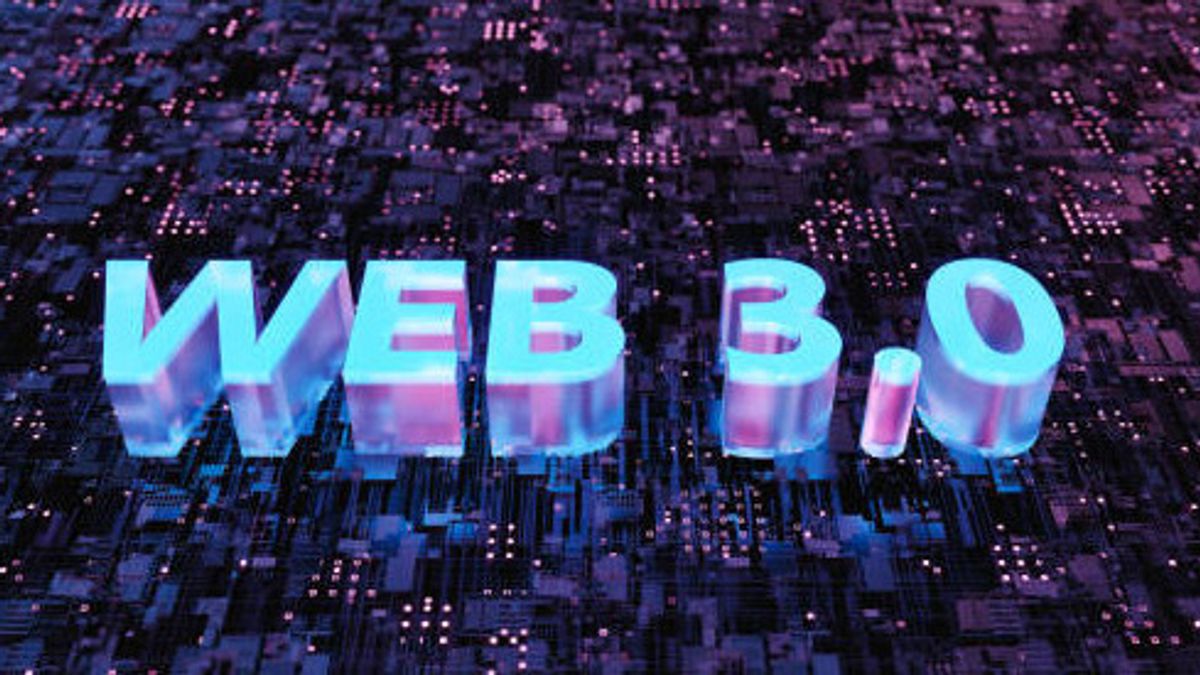Artificial intelligence (AI) market is one of the fastest growing industries in the world. According to market research firm Next Move Strategy Consulting, currently the AI market is worth nearly 100 billion US dollars (IDR 1,586 trillion) and is expected to grow exponentially.
It's no surprise that chatbots using AI are also increasingly popular. Recent findings from Prevention Research show that the global chatbot market size will reach US$840 million (Rp13.3 trillion) in 2022.
While opportunities around AI and chatbots are developing in various industries, the Web3 sector is also starting to take advantage of this trend. Where blockchain companies create AI chatbots to help developers build applications more quickly and efficiently.
A head of RippleX Research - an organization within Ripple that focuses on the development and growth of XRP Ledger - told Cointelegraph that RippleX is currently working on building an AI chatbot that XRP Ledger developers can use to ask questions.
"Instead of reading all the documentation and the client's library, developers will be able to direct their questions to AI chatbots to get instant answers. This will make it easier for developers to live because it will shorten the time from the idea to the app," said kopitelegraph as quoted by VOI.
Skale Labs - the team behind the Skale blockchain network - is also building an AI-based chatbot. Jack O'Holleran, co-founder and CEO of Skale Labs, said the Skale network has built-in AI capabilities and machine learning that allows developers to run AI models that have been trained previously in smart contracts.
"AI-based smart contracts run without very high human intervention. This allows developers to build quickly and effectively," Labs said.
O'Holleran explained that the AI Skale chatbot will soon be released publicly, and one of the main AI use cases is the support for engineering engineering development.
"Developers are now building with efficiency and track record productivity thanks to AI support. One of the main areas of support is instant access to knowledge of technical documentation and coding," he said.
In response to this, Matthew Van Niekerk, CEO and co-founder of SettleMint - a blockchain programming tool - said AI tools were important to developers.
Van Niekerk explained that SettleMint recently added assistant AI Engineering Genie to its platform for rapid smart contract development and testing and improving quality assurances.
"Our Genie AI is built to help organizations get their blockchain apps to production quickly so they can take advantage of the $3.1 trillion opportunity that is possible via blockchain," explains Van Niekerk.
The CEO of SingularityNET, Ben Goertzel, explained about the possible intersection between blockchain and AI back in 2017.
Van Niekerk also stressed that AI Genie SettleMint was built to support humans, not replace them. This is important to emphasize, as there is concern that AI-backed assistants can ultimately replace human workers.
"This tool is positioned as engineering assistant, not as an engineer. It is built to extrapolate tedious processes and complexity that prevent developers and engineers from focusing on building innovative solutions that will provide clear investment returns for their businesses," explains Van Niekerk.
To give an overview, William Baxter, chief of technology and co-founder of Vertalo's tokenization platform, said his company currently uses chatbots to summarize and present data to internal and external audiences. Baxter believes that assisted learning is one of the most promising general apps for chatbots.
"Instead of searching for topics and digging up results or relying on curators, chatbots allow you to consume a summary of a large volume of information. Paired with web access and using triggers that drive link inclusion to the primary source, it dramatically expands the scope of online research. When learning the language of new programming, blockchain, or app, feedback from chatbots is invaluable, although not entirely correct," Baxter said.
Challenges may lead to delays in implementation, although AI-backed chatbots have the potential to help Web3 developers build better, but some challenges can slow adoption.
For example, O'Holleran realizes that AI-based smart contracts can accelerate technical development, but it also shows that this app often requires throughput for on-chain execution with predictable and automatic expenses.
"This could be a problem on a network that has high gas costs and variable costs, as expected expenses can vary dramatically and accidentally become expensive quickly," he said.
To overcome this, O'Holleran explained that the Skale network has an on-chain cost rather than a gas cost, so the total cost is lower and predictable.
VOIR éGALEMENT:
Lydia Mark, communications director at Magma AI - a project building an AI chatbot that provides users with virtual Web3 technology learning assistants - says ethical bias can also be a problem with AI chatbots.
"Being very easy for AI systems like Magma to inherit the bias instilled during data training, which in turn can have a negative impact on the entire ecosystem," he said. To overcome this, Mark shared that Magma AI uses biased detection and mitigation techniques.
However, one of the biggest challenges related to AI chatbots is data privacy and security. Van Niekerk explained that companies that build or use AI assistants need to consider internal business policies and government regulations related to privacy.
"Large companies may have restrictions on the use of a generative AI technology due to the risk of data privacy breaches. AI Genie SettleMint is deliberately built as an optional tool on the platform so the company only follows when and if needed," he said.
Despite these challenges, Van Niekerk stated that overall, AI chatbots help ensure that Web3 is more inclusive and accessible to various developers.
"The science and expertise are now there to directly support new developers entering this space. Web2 developers can significantly accelerate their learning and Web3 skills curves thanks to AI developer support technology," he said.
The English, Chinese, Japanese, Arabic, and French versions are automatically generated by the AI. So there may still be inaccuracies in translating, please always see Indonesian as our main language. (system supported by DigitalSiber.id)


















